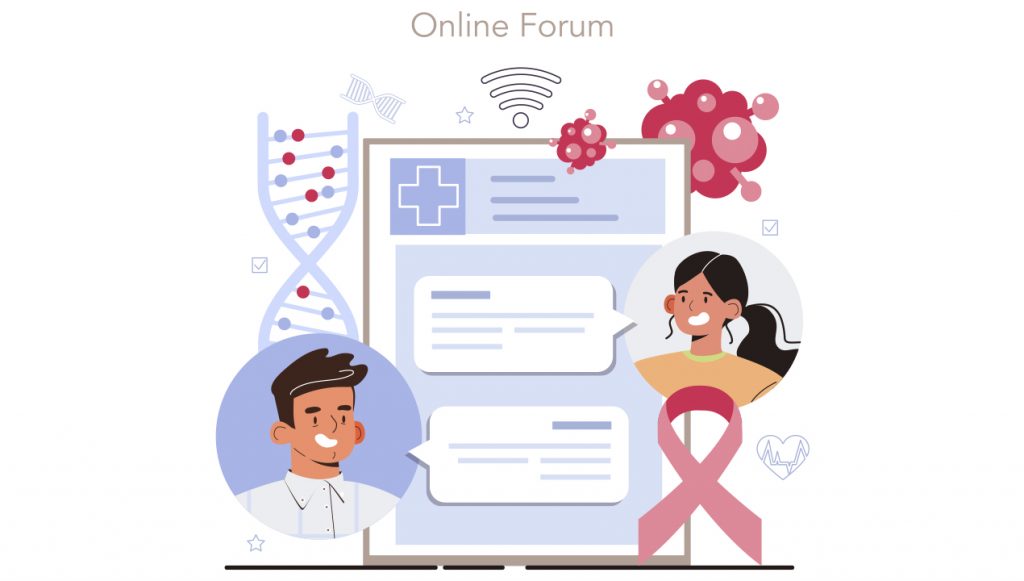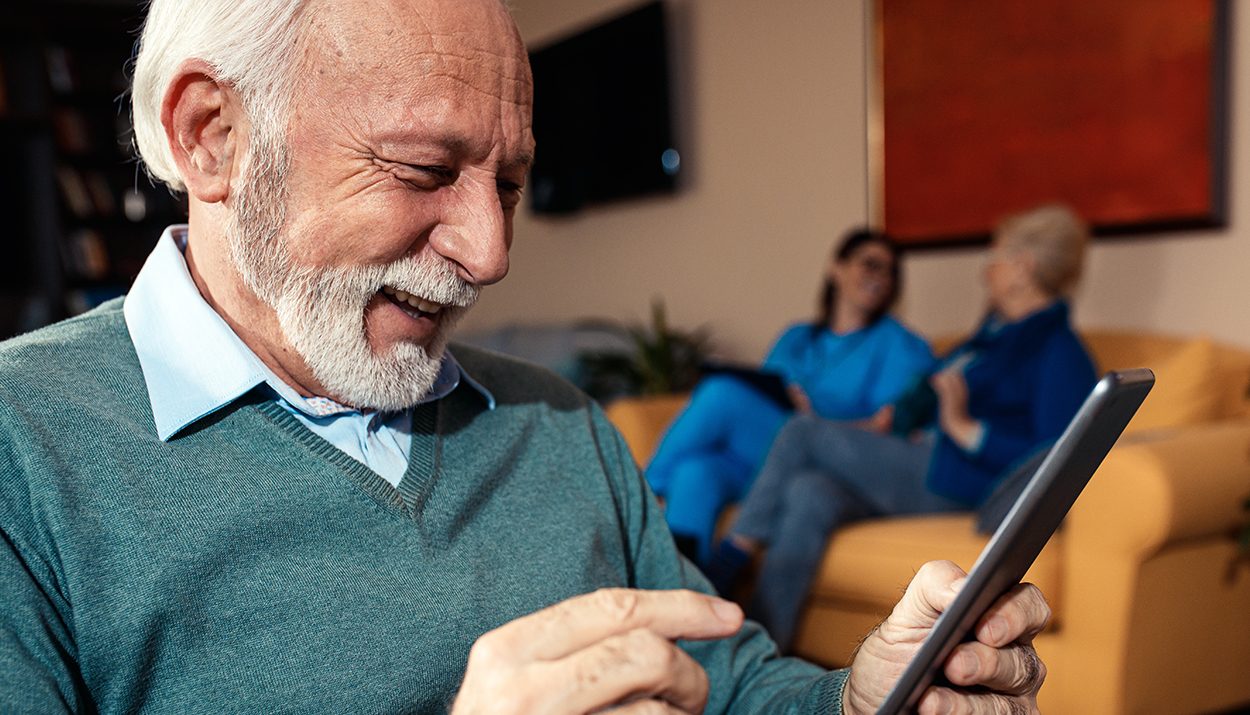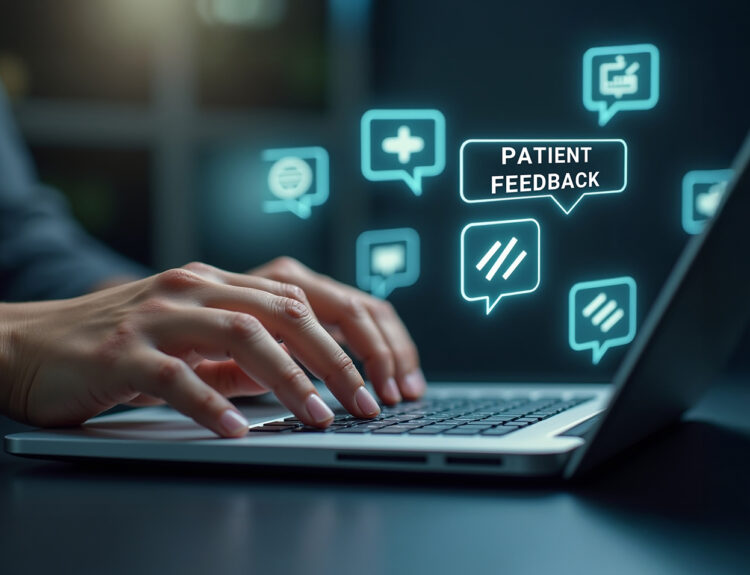In the journey of dealing with a chronic illness or medical condition, individuals often find themselves grappling with a multitude of emotions, from fear and frustration to isolation and sadness. During these challenging times, the value of emotional support cannot be overstated. Fortunately, patient communities, both online and offline, offer a lifeline for those in need. Through the stories, advice and encouragement shared within these communities, individuals find solace in the knowledge that they are not alone in their struggles. This sense of belonging can help alleviate feelings of isolation and despair, providing a vital source of emotional support. Moreover, these communities empower individuals with knowledge about their condition, treatment options and coping strategies, fostering a sense of control and hope.
In the following sections, we will explore how patient info communities offer emotional support to those dealing with chronic illnesses. From fostering a sense of belonging and understanding to providing practical advice and emotional resilience, these communities play a crucial role in helping individuals navigate the often turbulent waters of chronic illness.
The Power of Shared Experience
Understanding and Empathy:
Patient communities are unique because they bring together people who are facing similar health challenges. The shared experience of living with a particular condition fosters understanding and empathy that can be difficult to find elsewhere. Patients can relate to each other’s struggles, offering a level of compassion that is genuinely comforting.
Within these communities, individuals can openly discuss their symptoms, treatment experiences and the emotional rollercoaster that often accompanies chronic illnesses. This shared vulnerability helps break down the barriers that can exist in traditional social circles, where others may not fully comprehend the daily battles faced by those with medical conditions. In these communities, there’s no need to explain or justify one’s feelings or limitations because everyone understands.
The power of shared experience goes beyond words; it’s a profound connection that validates each person’s journey. This validation can be incredibly therapeutic, providing a sense of comfort and validation that can be transformative in the face of adversity.
Reducing Isolation:
One of the most significant challenges for individuals dealing with a medical condition is the feeling of isolation. Patient info communities create a sense of belonging, reminding members that they are not alone in their journey. This reduction in isolation can alleviate feelings of loneliness and depression, contributing to better mental health.
Chronic illnesses can disrupt daily life, making it challenging to engage in social activities and maintain relationships as before. This isolation can lead to a sense of estrangement from the world, compounding the emotional toll of the condition itself. Patient communities offer a lifeline by providing a network of people who genuinely understand what it’s like to face these challenges.
In these communities, individuals can share their triumphs and setbacks without fear of judgment. They can offer and receive emotional support, advice and encouragement from those who have been through similar experiences. This sense of camaraderie can be a powerful antidote to the emotional hardships that often accompany chronic illnesses, helping individuals find hope and resilience in the company of others who truly understand.
Emotional Support Mechanisms
Online Forums and Social Media:
Online patient forums, social media groups and dedicated websites have become popular hubs for individuals seeking emotional support. These platforms enable members to share their stories, ask questions and offer advice. They provide a safe space for patients to express their emotions openly.
- Shared Experiences: Online forums and social media groups create a global network of individuals who can connect regardless of physical proximity. Patients can interact with others who have the same condition, allowing for the exchange of experiences, coping strategies and emotional support.
- Anonymity: Many individuals dealing with chronic illnesses may feel hesitant to openly discuss their health in face-to-face interactions. Online platforms offer a level of anonymity, allowing people to share their concerns and feelings without fear of judgment or stigma.
- Accessible Information: These platforms serve as valuable resources, offering information on treatments, medications and lifestyle adjustments. Patients can seek advice from those who have already navigated similar challenges, empowering them with knowledge to make informed decisions about their health.
- 24/7 Availability: Online communities are accessible round the clock, providing immediate support when needed most. This availability is particularly beneficial during moments of crisis or when individuals are grappling with strong emotions related to their condition.

In-Person Support Groups:
While online communities have their advantages, in-person support groups remain a vital resource for many. These gatherings allow for face-to-face interactions, fostering deeper connections and a sense of community that extends beyond the digital realm.
- Personal Connection: In-person support groups facilitate direct human connection. Meeting others who share similar struggles can provide a profound sense of belonging and empathy. Face-to-face interactions can be especially comforting during difficult times.
- Emotional Expression: Participants in physical support groups can express their emotions in real-time, benefiting from immediate feedback and comfort. Sharing stories and experiences face-to-face can be incredibly therapeutic and validating.
- Education and Resources: In-person groups often feature guest speakers, workshops or educational sessions related to the condition. This provides valuable information and practical guidance to attendees, enhancing their ability to manage their health effectively.
- Local Community: In addition to emotional support, physical support groups can help individuals build a local support network, fostering friendships and connections that extend beyond the group meetings.
Benefits for Mental Health
Reducing Stress and Anxiety:
The emotional support gained from online patient communities can significantly reduce stress and anxiety levels. Knowing that there are others who understand their struggles can provide a profound sense of relief. Chronic illnesses often come with a constant undercurrent of stress and uncertainty. The online patient community offers a lifeline by providing a safe space to express these feelings and receive understanding and encouragement in return.
- Validation: Interacting with individuals who face similar challenges validates the patients’ emotions. This validation alone can alleviate the stress of feeling isolated or misunderstood.
- Shared Coping Strategies: Members often share effective ways to manage stress and anxiety related to their conditions. These practical tips can be invaluable in helping individuals develop strategies to cope with the emotional toll of their illnesses.
- Emotional Release: Expressing feelings of fear, frustration or sadness within a supportive community can serve as a healthy emotional release. This, in turn, can lower stress levels and improve overall mental well-being.
Enhancing Coping Strategies:
Members of online patient communities often share coping strategies that have worked for them. Learning from others’ experiences can empower individuals to better manage their condition and emotional well-being.
- Practical Advice: Patients often exchange advice on managing symptoms, navigating the healthcare system and maintaining a healthy lifestyle. This information equips individuals with practical tools to address their condition and reduce emotional distress.
- Emotional Resilience: Hearing success stories and strategies from fellow community members can inspire hope and build emotional resilience. It reminds individuals that they can overcome obstacles and adapt to their condition.
- Problem-Solving Skills: The online patient community encourages problem-solving. Members collaboratively explore solutions to common challenges, fostering a proactive approach to managing their health and mental well-being.
A study involving 528 individuals managing breast cancer, arthritis and fibromyalgia, who engaged in OPCs, revealed signs of patient empowerment. The most significant outcomes of empowerment were feeling better informed and experiencing improved social well-being.
Conclusion:
In times of medical adversity, emotional support is as essential as medical treatment itself. Patient info communities serve as lifelines, providing a safe space for individuals to share, learn and heal together. The power of these communities lies in their ability to foster understanding, reduce isolation and promote mental well-being. By connecting with others who face similar challenges, individuals can navigate their healthcare journeys with renewed strength and resilience.
References:
- Kevin. 5 benefits of online patient communities. KevinMD.com. Published June 28, 2013. Accessed September 7, 2023.
- Nambisan P, Gustafson DH, Hawkins R, Pingree S. Social support and responsiveness in online patient communities: impact on service quality perceptions. Health Expect. 2016;19(1):87-97

MDForLives is a vibrant community of healthcare professionals and patients dedicated to shaping the future of healthcare. We provide valuable global insights to healthcare companies through online surveys, interviews, and discussion forums.






